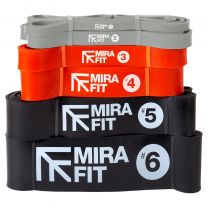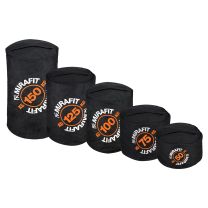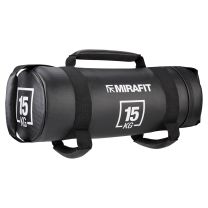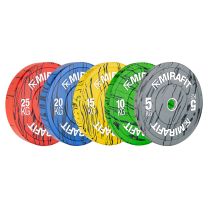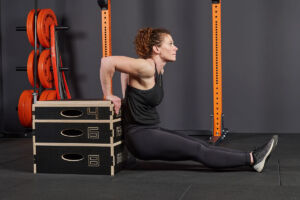Fuelling Your Body: Workout Diet Plan
Fuelling Your Body: Workout Diet Plan

A balanced exercise regime is known for its varied, functional movements performed at a high intensity. It's also designed to deliver focused workouts that mimic movements outside of the gym, in safe, structured environments.
Each gym is different, with experienced trainers that can take you through a workout of compound exercises developed to strengthen, educate and create a healthy lifestyle.
Getting fit is a lifestyle – of whole body health – so it's not just in the gym that you're focused on achieving your goals. Fuelling your body with the right nutrition and fluids is essential for optimum performance, and for quick and safe recovery times from a workout.
When it comes to nutrition, education is key.
Katie from Nutritionist Resource, spoke to Lorna Ryan, Ma, DipION, mBANT, rCNHC, former professional dancer, Nutritional Therapist and Lifestyle Medicine Practitioner about the requirements for fuelling your body through nutrition for optimum health, pre and post workouts.
“For most adults (those without underlying medical health conditions), nutritional requirements can be met with a diverse and balanced diet. On average, consuming approximately 40% carbohydrates, 30% protein and 30% fat, with a focus on plant foods including a variety in type, colour and texture of foods, ensures vital nutrients and their cofactors (nutrients that assist absorption) will be consumed to support training.”
Why do we focus on protein for strength-based training?

Lorna explains that there’s often a tendency to focus on protein for strength-based training, especially for intense training programmes, and although important, it’s not the only factor to consider.
“Protein is essential for growth, muscle tissue repair and maintenance of fundamental structures throughout the body including muscles. The body requires a daily intake of 20 different amino acids, the building blocks of protein, for essential functions including muscle repair. With additional demand, such as strength-based training, comes greater requirement of protein to be synthesised in order to form new cells, that in turn are used to repair muscle tissue fibres damaged by training.
“Alongside protein, nutrients, such as vitamins C, B9, B12 and K, minerals including calcium, magnesium, iron and zinc together with bioactive compounds like lycopene and indoles, are all vital. They support connective tissue, the nervous system, detoxification, the inflammatory process and enable protein synthesis.”
Lorna advises regular consumption of foods naturally high in these key nutrients will ensure adequate intake to support your training. These include:
- Food containing highest vitamin C levels include blackcurrants, red peppers, kiwi fruit and guava. Some may be surprised that oranges are not the richest source. Aim to consume 1-2 portions daily.
- Vitamin B9, also called Folate, is found in foods such as spinach, beef liver, black eyed peas, asparagus, Brussel sprouts, broccoli and mustard greens. Aim to consume 1 portion daily.
- Foods rich in vitamin B12 include beef liver, sardines, Atlantic mackerel, Lamb, wild-caught salmon. For anyone following a solely plant based diet, B12 can be found in Nutritional yeast. Ensure you consume 2-3 portions per month.
- Vitamin K is primarily found in leafy green foods such as kale, spinach, mustard greens, spring onions, turnip greens, Swiss chard and dandelion greens. Aim to consume 1-2 portions per week. Please limit foods rich in Vitamin K if you have been advised to do so by a doctor due to a health condition or prescription medication.
- An excellent source of calcium is sardines eaten with the bones, kefir, sesame seeds, collard greens, spinach and organic cheese. Ensure you consume 3 portions per week.
- Magnesium can be found in cooked spinach, cooked Swiss chard. Dark chocolate and pumpkin seeds. Aim to include 1-2 portions per day.
- Iron rich food sources include organic beef liver, venison, grass fed beef and soaked, cooked lentils. Aim for 2 portions per week and consume with a source of vitamin C to aid absorption.
- A rich source of zinc can be found in pumpkin seeds, grass fed beef, lamb, cashews and cooked chickpeas. Aim to consume 2-3 portions per week.
- Lycopene rich foods sources include tomatoes, papaya, red cabbage, asparagus, carrots and mango.
- Indoles are formed from a substance called glucobrassicin found in cruciferous vegetables such as kale, broccoli, cauliflower, watercress, bok-choy, Brussel sprouts and cabbage.
Some nutrient dense combining meal ideas include:
Breakfast – Kefir and yogurt with kiwi fruit, blackcurrants and pumpkin seeds
Lunch – Sardines on toast with spinach, kale and asparagus
Dinner – Venison with roasted red pepper, back eyed peas, Swiss chard and carrots
Snack – Papaya rolled in honey and toasted in sesame seeds
Pre-workout diet

If your workout is based on strength, endurance and ability, your muscles’ main source of energy comes from its glycogen storage, the process of storing glucose, which is limited. In order to enhance this storage and thus your muscle performance, it’s essential to eat foods which aid glycogen.
Lorna notes: “Pre-workout foods (eaten approximately two to three hours before training) should ideally consist of starchy carbohydrates such as rice and a small portion of lean protein such as turkey. Hydration is also important to include in a pre-workout meal or snack planning.”
Post-workout diet

Ensuring you consume the right nutrients after your workout is just as important as a pre-workout meal. Doing this will help your muscle protein to repair quicker, enhance your muscle growth and restore the glycogen levels that your body has used as fuel, in the workout itself. As strength is a key player in training, it’s essential to repair the muscle proteins to ensure optimum health.
Lorna explains that ideal post-workout foods (consumed approximately 30-60 minutes after training) should include: “A small portion of protein such as chicken or eggs, and a whole grain carbohydrate source such as sweet potato. Post-work foods do not count as the main meal, which should include a diverse plate including vegetables and healthy fats.”
It’s essential to eat your meal up to a maximum of an hour post-workout as this is when your body is most equipped to restore its protein and glycogen stores.
For strength-based training programmes, knowledge and practice is essential to achieve various personal goals, in a realistic and healthy timescale. Nutrition is key in aiding effective workouts, offering support and sustainability when your body is performing intense activities.
Written by Katie at Nutritionist Resource, a leading support network for nutrition and health. To find a Sports Nutritionist, visit the dedicated Sports Nutrition page.
For more content, follow us on Instagram, YouTube, TikTok, and on our official Mirafit Facebook page.
Enter your email to signup to our newsletter
Tags: Misc > Lifestyle

